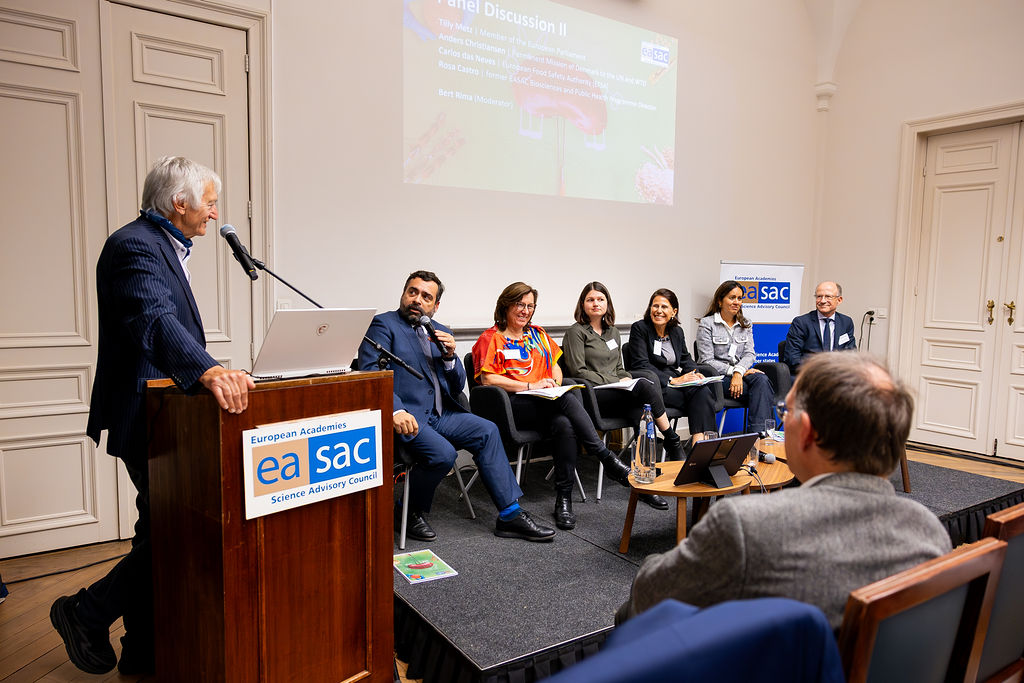

EASAC urges EU to back meat alternatives in new roadmap for protein transition
The European Academies Science Advisory Council (EASAC) has called on the European Union to move quickly to support the development and uptake of meat alternatives, warning that the bloc risks falling behind in the global protein transition if it fails to act.
In a report launched in Brussels on 4 September, experts from across Europe outlined how plant-based, microbial, insect-derived, and cell-cultivated proteins could play a central role in helping the EU meet its climate, biodiversity, and food security goals. The report stresses that while scientific and technological advances are progressing rapidly, policymaking and regulation are not keeping pace.
“The EU needs to act now if it wants to stay ahead of the protein transition, ensure food security, and meet its climate and biodiversity goals,” commented Professor Bert Rima, Chair of the EASAC Working Group on Meat Alternatives. “It should create policies that support innovation in meat alternatives while ensuring food safety and consumer protection. Europe’s future generations are likely to grow up with less meat on their plates – and that may be both necessary and beneficial. The report offers guidance to encourage people to eat less meat and to enable better choices.”
The 200-page report provides a science-based roadmap for policymakers, balancing environmental imperatives with public health and resilience of the food system. It highlights how meat production is a major driver of greenhouse gas emissions, land degradation, and biodiversity loss, while also noting the health risks associated with high levels of red and processed meat consumption. At the same time, it emphasizes that dietary change is a sensitive issue, shaped by culture, tradition, and economic circumstances.
At the launch event, held at the Palais des Académies, EASAC President Wim van Saarloos welcomed guests alongside policymakers including Tilly Metz, Member of the European Parliament, and Giuseppina Luvarà of the European Commission’s Directorate-General for Research. The program also featured contributions from the European Food Safety Authority, the European Consumers’ Association, and scientific experts from across the continent.
One of the key findings of the report is that the EU must urgently modernize its policy frameworks. This includes developing clear rules on labeling, improving standards for environmental assessments, and investing in the safe scaling of emerging technologies such as microbial fermentation and cultivated meat. Without this, the authors warn, innovation will stall and consumers will remain confused or misled by inconsistent information.
The report sets out six main priorities for EU policymakers. These include introducing transparent and mandatory labeling standards covering nutrition, processing, and environmental footprint; establishing a clear regulatory framework for novel proteins; and enhancing sustainability benchmarks, particularly in life-cycle assessments and the use of renewable energy. It also recommends strengthening consumer awareness through evidence-based dietary guidance and targeted campaigns to counter misinformation.

Investment is another critical theme. The authors argue that the EU should increase funding for research and development, especially in microbial and cultivated meat, which remain at an earlier stage of commercialization. They also suggest support mechanisms for livestock farmers, helping them adapt to changing markets and consumer demand by diversifying into alternative protein production or related areas.
The report does not shy away from ethical questions. It urges policymakers to consider varying dietary needs, cultural traditions, and socioeconomic conditions when shaping strategies for meat alternatives. It also draws attention to the need for ethical oversight in insect farming and in the use of animal-derived cells for cultivated meat.
Professor Hanna Tuomisto, a member of the working group, underlined the complexity of the challenge. She pointed to the need for reliable environmental data and robust methodologies to compare meat alternatives with conventional meat. “We need standardized life-cycle assessments and greater clarity on sustainability claims to give consumers confidence and ensure fair competition,” she said.
Representatives from consumer groups also emphasized the importance of trust. Irina Popescu of the European Consumers’ Association called for clear and accessible information so that shoppers can make informed decisions. Without transparency, she argued, public confidence in new products will be undermined.
For EASAC, the timing of the report is crucial. The European Commission is currently considering a dedicated Protein Strategy to strengthen the sustainability and resilience of the EU food system. The report’s authors hope their recommendations will shape that strategy, ensuring that science, public health, and environmental priorities are at its core.
As policymakers weigh their next steps, the message from the scientific community is clear: meat alternatives must be part of Europe’s food future. But for that to happen, supportive policies, clear standards, and sustained investment will be essential.
If you have any questions or would like to get in touch with us, please email info@futureofproteinproduction.com


-p-800.jpg)



